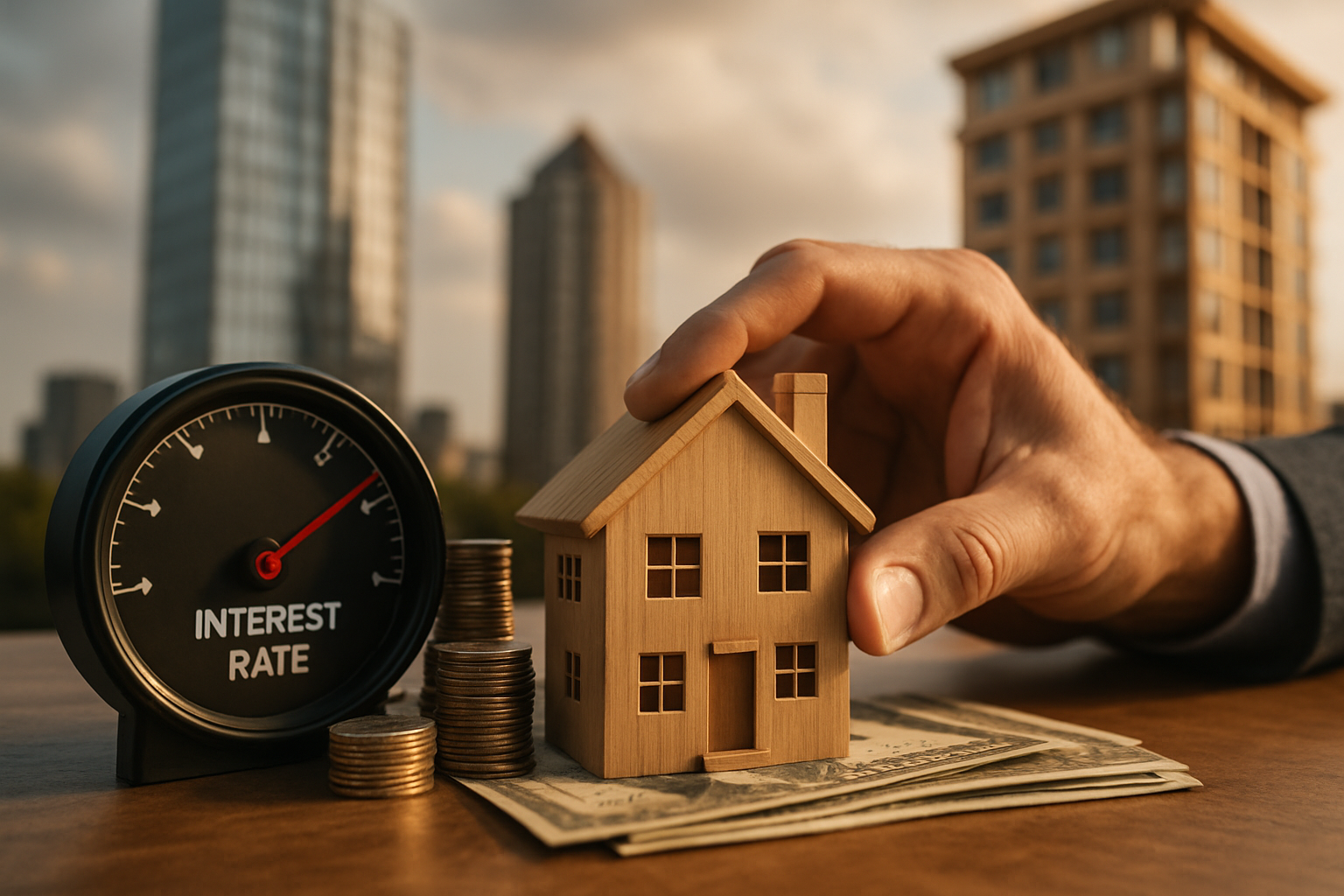Decoding the Impact of Interest Rates on Real Estate Investments
The world of real estate is a complex labyrinth of factors that influence the market's dynamics. One such crucial element is the interest rate, which plays a significant role in shaping investment decisions. This article delves into the intricate relationship between interest rates and real estate investments, offering a comprehensive understanding of its implications for investors.

A Brief History of Interest Rates and Real Estate
Interest rates have always been a critical determinant of real estate investment decisions. Historically, periods of low-interest rates have seen a surge in property investments, while high-interest rates have often led to a slowdown in the real estate market. This is primarily because the cost of borrowing, which is directly influenced by interest rates, affects the profitability of real estate investments.
Understanding the Current Scenario
In the current economic climate, central banks worldwide have slashed interest rates to stimulate economic growth amidst the pandemic. This has led to a surge in real estate investments as lower borrowing costs have made property investments more attractive. However, it’s essential to understand that this is a double-edged sword. While low-interest rates make borrowing cheaper, they also lead to higher property prices, which could potentially lower the return on investment.
The Pros and Cons of Low-Interest Rates
Low-interest rates undoubtedly make real estate investments more appealing. They reduce the cost of mortgages, making it more affordable for investors to buy properties. Additionally, they can lead to an increase in property values, benefiting those who already own real estate.
However, the flip side is that low-interest rates often lead to inflated property prices. This means that while it’s cheaper to borrow money, the actual cost of buying property may be significantly higher. This could potentially lead to lower returns in the long run, especially if property prices correct when interest rates rise.
The Impact on Different Types of Real Estate Investments
The effect of interest rates varies across different types of real estate investments. For instance, residential properties often see a surge in demand during periods of low-interest rates, as more people can afford to buy homes. On the other hand, commercial properties may not see the same level of demand, as businesses may be more cautious about expanding in uncertain economic times.
Preparing for a Future of Rising Interest Rates
While it’s impossible to predict with certainty, experts suggest that interest rates will eventually rise as economies recover from the pandemic. This could lead to a cooling of the real estate market, as borrowing becomes more expensive. Investors should be prepared for this scenario and consider diversifying their portfolios to mitigate potential risks.
In conclusion, interest rates play a pivotal role in shaping the dynamics of the real estate market. While they present opportunities, they also come with potential risks. As an investor, understanding the intricate relationship between interest rates and real estate investments is crucial to making informed decisions.






